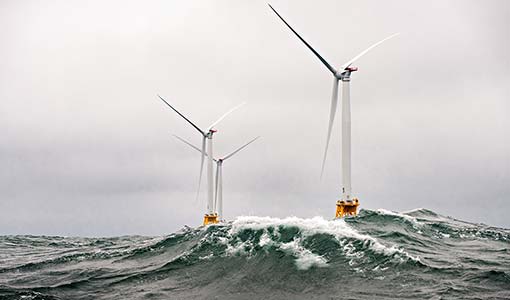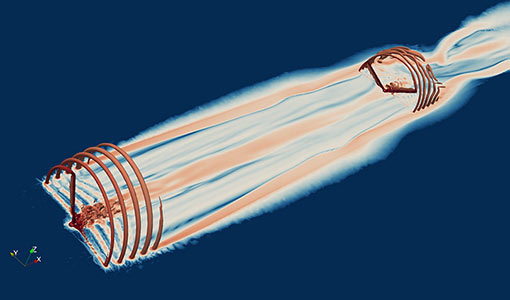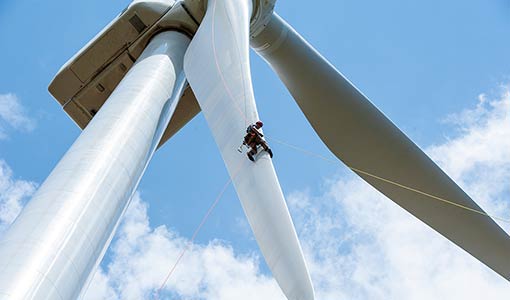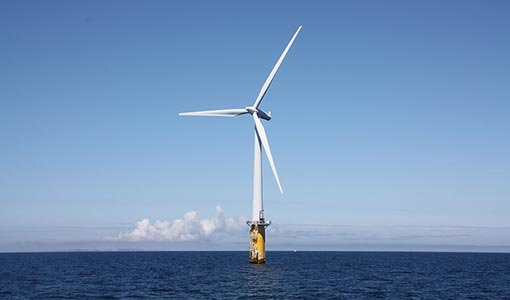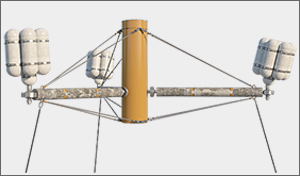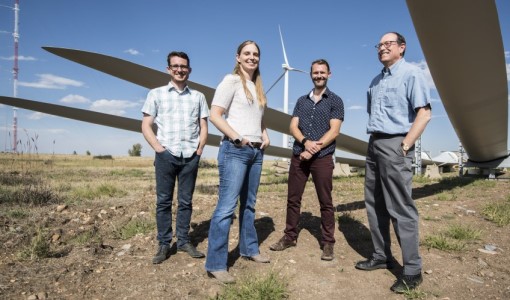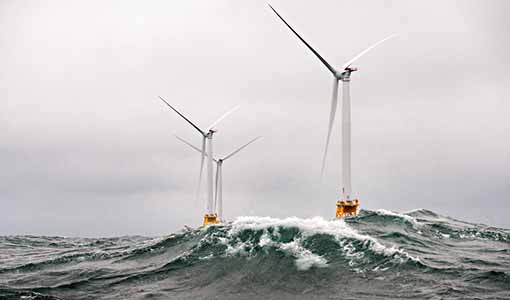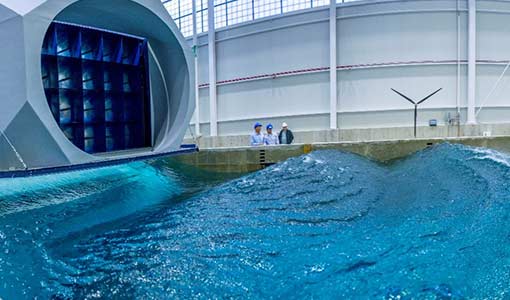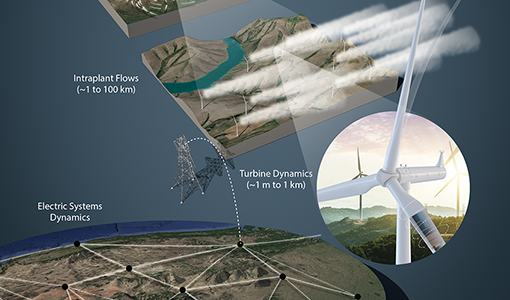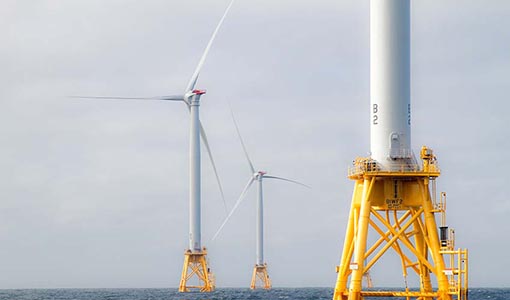Explore our collection of new stories for this topic.
Search or filter for a specific story using the options below.
December 2019
On with the Wind
Wind turbines with social skills. Potato guns that help researchers better understand wind-wildlife impacts. A fast-growing and long-lasting demand for skilled wind workers. Whatever the story, 2019 saw gale-force developments in wind energy research at NREL, and these currents show no signs of slowing down.
NREL Researchers Pursue the Biggest Possible Wind Plant Model
Paul Veers, the chief engineer at NREL's National Wind Technology Center, collaborated with technical experts from around the world to develop an end-to-end resource covering every aspect of wind energy design, modeling, and simulation. The resulting two-volume book, which includes NREL contributions to 10 of the 18 chapters, explains the principal elements behind multiple subsystem models that are needed to create a full-system optimization framework.
Pushing the Boundaries of Land-Based Rotor Growth
Researchers from the U.S. Department of Energy's (DOE's) National Renewable Energy Laboratory (NREL) and Sandia National Laboratories (Sandia) are searching for ways to maximize the advantages of large-scale rotors and their potential for increased energy generation. Their work as part of DOE's Big Adaptive Rotor (BAR) project aims to create the next generation of land-based wind turbines with 206-meter (m) rotors, which will increase capacity factors by 10% or more over a typical land-based turbine.
November 2019
Best of Both Worlds: NREL Optimizes the Control and Design of New Offshore Floating Turbines
NREL and its team of partners and external advisors will incorporate systems control co-design principles--designing and optimizing all system components, including the control system, simultaneously--in a revolutionary toolset to enable offshore floating system engineers to design radically new systems at greatly reduced cost.
SpiderFLOAT Spins a Web of Offshore Innovation
The National Renewable Energy Laboratory's (NREL's) innovative SpiderFLOAT technology—named for its modular components that resemble spider legs—has the potential to reduce these costs by simplifying construction and maintenance logistics for deep-water wind systems in challenging offshore marine environments.
Wind Pioneer Paul Veers
NREL Research Fellow Paul Veers learned early that he didn't want to stay on the farm, but instead found the challenge of wind energy and its wind farms a perfect fit.
October 2019
News Release: NREL Selected for Series of Offshore Wind Turbine Research Projects
NREL was named prime contractor for three projects within ARPA-E's Aerodynamic Turbines Lighter and Afloat with Nautical Technologies and Integrated Servo-control (ATLANTIS) program.
ARPA-E Wind Wins: NREL to Produce Public Datasets that Advance Floating Wind Turbine Design
Next-gen floating wind systems will use controls to make them more efficient, lighter weight, and lower cost, but first industry needs a foundation built on validated design tools to explore novel controls-integrated design approaches. NREL is generating the first public data set to include advanced turbine and platform control using a 1:60-scale testing setup, which will provide data to validate the modeling tools incorporating control co-design characteristics.
NREL Staff Discuss Their Research at AWEA Offshore
NREL researchers will attend the American Wind Energy Association (AWEA) Offshore WINDPOWER Conference alongside staff from the U.S. Department of Energy (DOE) Office of Energy Efficiency and Renewable Energy Wind Energy Technologies Office (WETO). The event takes place Oct. 21-23, 2019, in Boston and provides attendees an opportunity to engage in panels, presentations, and discussions about the status and future of offshore wind in the United States.
Share
Last Updated May 5, 2025

